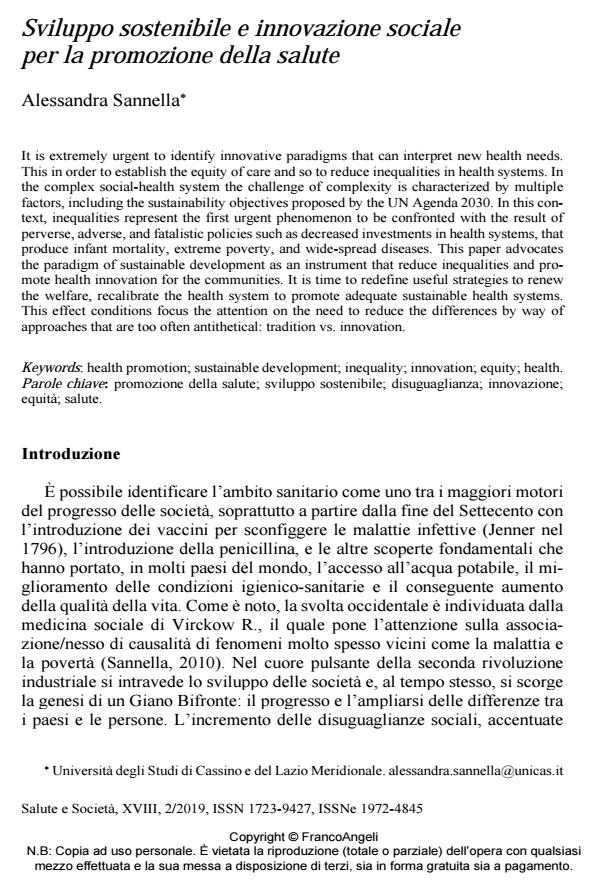Sviluppo sostenibile e innovazione sociale per la promozione della salute
Journal title SALUTE E SOCIETÀ
Author/s Alessandra Sannella
Publishing Year 2019 Issue 2019/2
Language Italian Pages 15 P. 68-82 File size 243 KB
DOI 10.3280/SES2019-002007
DOI is like a bar code for intellectual property: to have more infomation
click here
Below, you can see the article first page
If you want to buy this article in PDF format, you can do it, following the instructions to buy download credits

FrancoAngeli is member of Publishers International Linking Association, Inc (PILA), a not-for-profit association which run the CrossRef service enabling links to and from online scholarly content.
It is extremely urgent to identify innovative paradigms that can interpret new health needs. This in order to establish the equity of care and so to reduce inequalities in health systems. In the complex social-health system the challenge of complexity is characterized by multiple fac-tors, including the sustainability objectives proposed by the UN Agenda 2030. In this context, inequalities represent the first urgent phenomenon to be confronted with the result of perverse, adverse, and fatalistic policies such as decreased investments in health systems, that produce infant mortality, extreme poverty, and wide-spread diseases. This paper advocates the para-digm of sustainable development as an instrument that reduce inequalities and promote health innovation for the communities. It is time to redefine useful strategies to renew the welfare, recalibrate the health system to promote adequate sustainable health systems. This effect condi-tions focus the attention on the need to reduce the differences by way of approaches that are too often antithetical: tradition vs. innovation.
Keywords: Health promotion; sustainable development; inequality; innovation; equity; health.
- Perspectives for a New Social Theory of Sustainability Mariella Nocenzi, Alessandra Sannella, pp.3 (ISBN:978-3-030-33172-6)
- L’utopie de la santé 3D Alessandra Sannella, in Diogène /2022 pp.251
DOI: 10.3917/dio.273.0251
Alessandra Sannella, Sviluppo sostenibile e innovazione sociale per la promozione della salute in "SALUTE E SOCIETÀ" 2/2019, pp 68-82, DOI: 10.3280/SES2019-002007